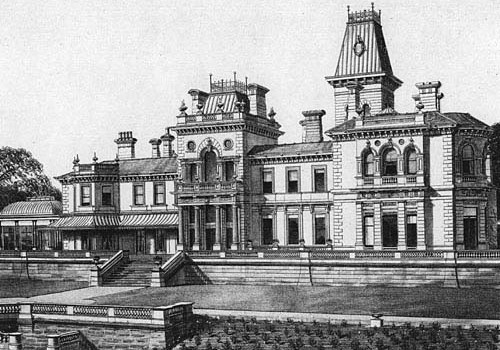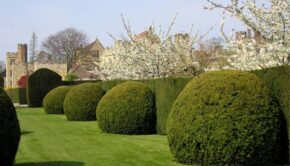Time Was
We in this country are fortunate that there are still many old houses to be seen which have weathered time and the ever-present threat of the bulldozer. It is pleasing to see that many details, some small, some important, have been preserved for us in the diaries and letters of the people who lived in these places.
It is interesting to note that a country house 150 years ago was almost entirely self-supporting, producing fuel, lighting, clothes and medicine. Food was provided from its’ own fields and stock yards and most chores were done by hand. Hams were smoked, fish and meat salted down for the winter. Fruits from the garden were made into syrups or placed in lofts, and herbs died for seasoning or medicines.
Nothing was wasted. In the kitchen fats were saved for the candlemakers. Dark yellowish tallow candles with cotton wicks for the parlour and the hall and rushlights for the servants’ quarters. The rushes were gathered in the summer whilst still green, peeled and dried in the sun, then soaked in the scalding fat (scummings from the bacon pot). Feathers from the poultry yard were cured for mattresses and pillows. Dressmaking and sewing were carried out by the mistresses and maids, the cloth probably having been woven on a cottage loom nearby.
Although there was much to be done, it was shared amongst many and the daily chores were probably cheered by the variety of work and the congenial companionship. Servants then were regarded as part of the family and there was not the rigid distinction between kitchen and parlour which later sprang up in the Victorian era. Wood needed for repairs and new building came from trees on the estate and paths and roads were replenished with gravel from the local pits.
The squire’s life was varied, from the management of his estate to the proper discharge of all traditional duties. He was the head of a large household and landlord to tenant farmers and cottagers, and most of these he knew personally. This was a time when Social Services were non-existent and it was to him that the sick and impoverished looked for help and advice. He was expected to show a good example in religious matters and was also a Justice of the Peace responsible for the enforcement of the law in his own locality and reproving the drunken, the idle or immoral. It was also the Squire who usually founded the local school. When the church needed new pews or repairs it was to him that the vicar applied.
In studying the writings of our ancestors it is fascinating to learn a little of our roots and the manner in which we have become the men and women we are. From these writings we can see how very similar were the duties of everyday life that regularly had to be carried out. So it is today that beds have to be made, children cared for, rooms kept clean and meals planned and prepared. The tools we use may differ, but through all the upheavals of politics and war the age-old pattern of life continues.





Comments